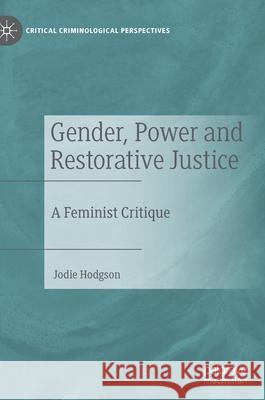Gender, Power and Restorative Justice: A Feminist Critique » książka
topmenu
Gender, Power and Restorative Justice: A Feminist Critique
ISBN-13: 9783030908263 / Angielski / Twarda / 2022 / 250 str.
Gender, Power and Restorative Justice: A Feminist Critique
ISBN-13: 9783030908263 / Angielski / Twarda / 2022 / 250 str.
cena 390,87 zł
(netto: 372,26 VAT: 5%)
Najniższa cena z 30 dni: 385,52 zł
(netto: 372,26 VAT: 5%)
Najniższa cena z 30 dni: 385,52 zł
Termin realizacji zamówienia:
ok. 20 dni roboczych.
ok. 20 dni roboczych.
Darmowa dostawa!
Kategorie:
Kategorie BISAC:
Wydawca:
Springer Nature Switzerland AG
Seria wydawnicza:
Język:
Angielski
ISBN-13:
9783030908263
Rok wydania:
2022
Ilość stron:
250
Waga:
0.45 kg
Wymiary:
21.01 x 14.81 x 1.6
Oprawa:
Twarda
Wolumenów:
01
Dodatkowe informacje:
Wydanie ilustrowane











